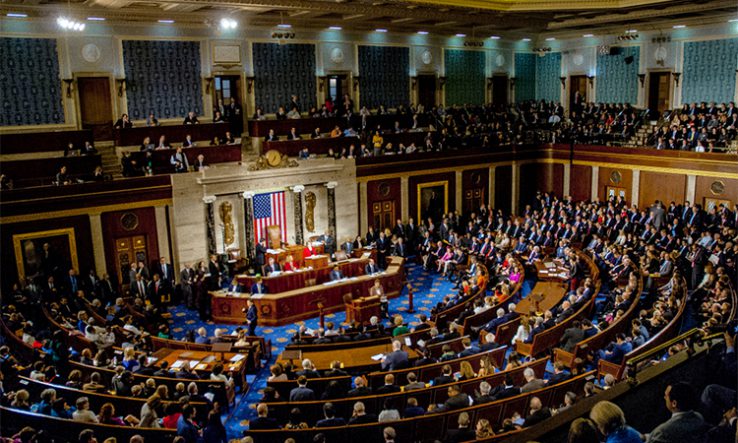
Image: mark reinstein, via Shutterstock
Bill providing funding to cover costs of lab closures could face headwinds in the Senate
A fifth coronavirus stimulus package making its way through the United States Congress would provide almost $10 billion in research-related funding, as well as a further $37bn for higher education institutions.
The bill, dubbed the Heroes Act, was drafted by Democrats and passed the Democrat-controlled House of Representatives on 15 May. It would provide $3 trillion in relief funds for the Covid-19 pandemic, succeeding and dwarfing the $2tn Cares Act, which became law on 27 March.
But on 14 May, the White House said president Donald Trump would veto the bill, which is yet to go before the Republican-controlled Senate.
The vast majority of research funds in the bill would go to the National Institutes of Health ($4.7bn) and the Biomedical Advanced Research and Development Authority ($4.5bn). Of the NIH funds, at least $3bn would be set aside to help academic institutions absorb coronavirus-related shutdown and restart costs.
Research advocates welcomed the proposed extra funding for the NIH but said it would not be enough to cover the costs inflicted by Covid-19 on US institutions.
“This is $7bn shy of the recovery costs NIH director Francis Collins cited,” said Mary Woolley, chief executive of Research!America, referring to Collins’s estimation at a Senate committee hearing on 7 May that $10bn of NIH-funded research would “disappear” due to lab closures.
Peter McPherson, president of the Association of Public and Land-grant Universities, said the funding was “inadequate” and did not “match the need to ensure the nation’s scientific enterprise is positioned to lead to both coronavirus and other research efforts”.
“Many other important federal science agencies that support the nation’s research labs are left out of the bill,” McPherson added.
The Heroes Act would provide an additional $125m to the National Science Foundation and $10m each to the National Endowment for the Humanities and the National Endowment for the Arts, as well as funding for research activities at the Centers for Disease Control and Prevention, the US Geological Survey and the Environmental Protection Agency.
There was a more enthusiastic reception for the bill’s provisions for higher education, which include $27bn for public colleges and universities via a state-administered fund and a further $10bn set aside for higher education institutions.
“The funding would go a long way to support institutions essential to the public good,” said McPherson. David Skorton, president of the Association of American Medical Colleges, said he was grateful that the bill “addresses many important issues facing the medical schools”.